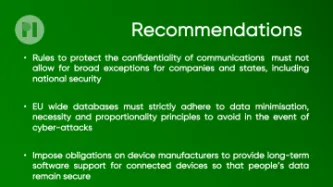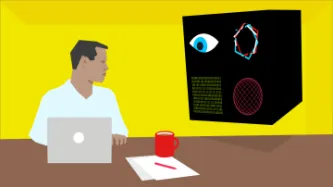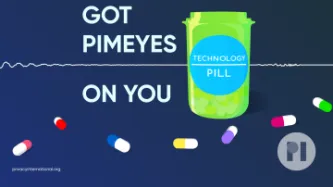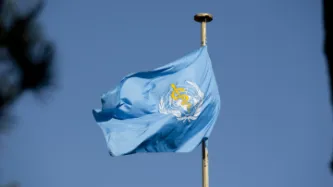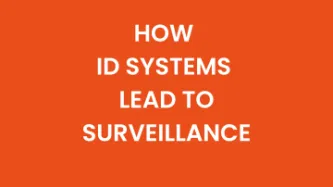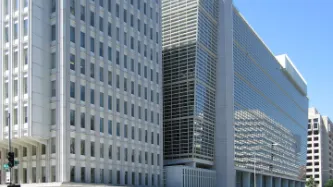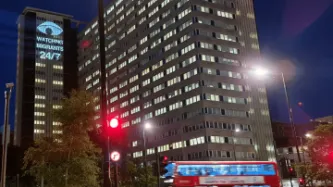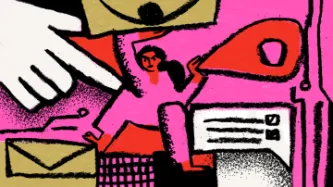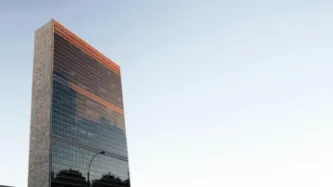Search
Content type: Examples
US parents have reported receiving an explicit and deliberately shocking image after hackers attacked the primary school learning app Seesaw. Seesaw has 10 million users, who include teachers, students, and family members. The company said the hackers had not gained administrative access, but had accessed individual accounts via compromised email addresses and passwords that had been reused across services.
https://www.bbc.co.uk/news/technology-62914010
Writer: BBC
Publication: BBC
Content type: Examples
At least 37 US colleges and universities, as well as numerous school district, have repurposed Social Sentinel (recently renamed Navigate360 Detect) to help campus police surveil student protests. The software is marketed as a safety tool that can scan students' social media posts and university email accounts to identify those who are at risk of harming themselves or others; adoption in schools has been fuelled by shootings. For public colleges, this use of the software creates a conflict…
Content type: Examples
The 32-year-old Americans with Disabilities Act is failing to protect neurodivergent students from school monitoring and risk assessment software that treats any divergence from stereotypically "normal" behaviour as a harm to both the students themselves and others. Remote proctoring software penalises those who need psychological help, flag "suspicious" movements such as looking away from the screen during a test, and makes no provision for disabled students' special needs. These problems are…
Content type: Examples
In a 2010 case, the Lower Merion school district in suburban Philadelphia school district agreed to pay $610,000 to settle two lawsuits brought by students who had discovered that the webcams attached to their school-issued laptops had secretly taken hundreds of photographs of them in their homes along with hundreds of screen shots. In one of the cases, a teenaged boy was accused of popping pills; in fact, he was eating jelly beans.
https://www.wired.com/2010/10/webcam-spy-settlement/
Writer…
Content type: Examples
Even though schools are back in session in person, their teachers can still monitor the screens on their school-issued devices via software such as GoGuardian. In a new report from the Center for Democracy and Technology, 89% of teachers say their schools will continue to use student-monitoring software, up from 84% in 2021, raising worries about how the data will be used in a climate increasingly hostile towards abortion and LGBTQ+ issues.
CDT also reports that 44% of teachers say that at…
Content type: Examples
A new report from the education news site The 74 Million finds that in-school digital surveillance programs are flagging LGBTQ+ content as "pornographic". For example, Gaggle, comprehensive monitoring software implemented in the Minneapolis public school system, has led administrators to notify parents that their children's submissions have been flagged, without context, for mentioning suicide, gay, and lesbian. Democratic senators Elizabeth Warren (D-MA), Ed Markey (D-MA), and Richard…
Content type: Examples
Following the US Supreme Court's Dobbs decision that paved the way for states to enact legislation criminalising abortion, health advocates warn that the surveillance software schools use to algorithmically monitor students' messages and search terms could be weaponised against teens looking for reproductive health care. These systems can automatically alert school administrators, parents, or police when they detect "dangerous behaviour", which may include anything from imminent suicide…
Content type: Examples
The Welsh Local Government Association is collaborating with the Centre for Digital Public Services on an 8-to-12-week discovery project to help local authorities to understand schools' requirements for information management systems and understand the market offerings in order to formulate a needs-based procurement specification. The project is intended to produce a shared set of core requirements and will look at user need for establishing one or more core datasets, individual schools'…
Content type: Examples
During a remotely proctored online exam, a number of students on the Bar Professional Training Course urinated in bottles and buckets and wore adult diapers rather than risk the possibility that their exam would be terminated if they left their screens long enough to go to the toilet. The Bar Standards Board responded to the story by saying that students are warned in advance that they will not be able to leave the room during an online exam and that they should take the exam in a test centre…
Content type: Examples
In September 2022, the UK Department for Education announced that under a £270,000 contract with Suffolk-based Wonde Ltd it would collect data on children's school attendance and potentially share it with other government departments and third parties as part of its drive to raise attendance. A visualisation tool will create an interactive national attendance dashboard to run alongside the publication of fortnightly attendance data that the DfE says will provide "ongoing transparency". LSE…
Content type: Examples
Intel, in partnership with the software company Classroom Technologies, has developed an AI facial analysis system ("Class") by training an algorithmic model based on labels psychologists applied to the emotions they could detect in videos of students in real-life classrooms. The software is intended to help teachers get feedback from students in online classrooms and warn if the students are bored or confused; critics worry the system could threaten student privacy and damage teacher-student…
Content type: Advocacy
PI Opening Statement at PEGA Hearing on "Spyware and ePrivacy"
[check against delivery]
Thank you very much for offering us the opportunity to give evidence before this Committee for a second time.
Privacy International (PI) is a London-based non-profit that researches and advocates globally against government and corporate abuses of data and technology. For years we have been tracking the surveillance industry, challenging unlawful surveillance before national courts as well as the Court of…
Content type: Press release
The European Ombudswoman, Emily O’Reilly, has launched two new investigations into Frontex, the European Border and Coast Guard Agency, and into the European External Action Service (EEAS), the EU’s diplomatic agency, in relation to their support to non-EU countries to develop surveillance capabilities and, in particular, their lack of prior human rights risk and impact assessments.
The investigations, opened on 5 October 2022, come in response to complaints filed by Privacy International,…
Content type: Advocacy
Algorithmic management fundamentally relies on the availability of data to make decisions. The impact that these decisions can have on workers can be financially and emotionally devastating.
PI has previously exposed this issue through the Managed by Bots campaign - in which we called for the conditions under which data is collected and processed to be subjected to effective and robust scrutiny.
Content type: Video
Please note this podcast was recorded before Sebastian and Netzpolitik were able to talk to PimEyes CEO Gobronidze in person.
Links
Find more from Sebastian
More of Netzpolitik's work on PimEyes
PI's work on facial recognition
Our work on Clearview
Content type: Advocacy
Privacy International welcomes the opportunity to provide written input on the working draft of the WHO’s Pandemic prevention, preparedness, and response accord (“WHO CAII”) published on 13 July 2022.
This submission is based on our research and assessment of data-reliant and tech-intensive measures deployed by governments and companies in response to Covid-19 and its aftermath, which documented how these measures impacted people’s fundamental rights and freedoms, including the right to…
Content type: Examples
Despite having opened their borders to and taking in millions of fleeing Venezuelan migrants, the Colombian government’s handling process for this population tells a story of discrimination rather than inclusion.
The 2021 issuance of the Temporary Statute for Venezuelan Migrants came with a legal framework laying out the benefits for incoming Venezuelans, but also outlined how a multibiometric system would be used for identification of this specific migrant group.
This system allows for…
Content type: Examples
In December 2019, a Brazilian public security programme, called the Integrated Border Operations Center (CIOF) was presented. The CIOF aims to combat transnational organised crime in the region of Foz do Iguaçu and the Triple Border Area1, shared by Argentina, Brazil, and Paraguy, and integrate different public security agents through a centralised system.
It has been reported that CIOF is part of a wider digital security apparatus being deployed in the Triple Border Area, that there is…
Content type: Report
End-to-end encryption (E2EE) contributes significantly to security and privacy. For that reason, PI has long been in favour of the deployment of robust E2EE.Encryption is a way of securing digital communications using mathematical algorithms that protect the content of a communication while in transmission or storage. It has become essential to our modern digital communications, from personal emails to bank transactions. End-to-end encryption is a form of encryption that is even more private.…
Content type: Key Resources
ID systems are all too often a smokescreen. They are a tool for giving unprecedented surveillance powers to the police, security services, and other actors.
Content type: Advocacy
We, the undersigned civil society organizations and individuals, urge the World Bank and other international organizations to take immediate steps to cease activities that promote harmful models of digital identification systems (digital ID).
The signatories of this letter are located in different countries, work with diverse communities, and bring a wide range of expertise. Among this group, there are many shared concerns and similar experiences documenting the harmful impacts…
Content type: Advocacy
Read in English
Nosotros, las organizaciones de la sociedad civil y los individuos abajo firmantes, instamos al Banco Mundial y a otras organizaciones internacionales a que tomen medidas inmediatas para cesar las actividades que promueven modelos perjudiciales de sistemas de identificación digital (ID digital).
Los firmantes de esta carta se encuentran en diferentes países, trabajan con diversas comunidades y aportan una amplia gama de conocimientos. Entre este grupo, hay muchas…
Content type: Course Section
Knowledge gap?
Research finding: In 2018, a study by the NGO Doteveryone on digital understanding found a “major understanding gap” of British citizens when it comes to digital technologies. For example, they found that 83% of British don’t realise that information shared about them by others is collected, and 70% don’t realise free apps make money from data.
Finding: In 2020, another study by Doteveryone found that while the public’s understanding of data collection has increased, it still…
Content type: Course Section
In this chapter, we will give a brief overview of the landscape of online ‘critical data literacy resources’, present a database that collects such resources and recommend some example resources for different types of learners. While there are also ‘traditional’ formats of teaching material available, for example textbooks or worksheets, our research and thus this chapter focusses on online resources.
Online resources can have various formats: websites, videos, games, podcasts, online courses,…
Content type: Long Read
Introduction
In response to the unprecedented social, economic, and public health threats posed by the Covid-19 pandemic, the World Bank financed at least 232 "Covid-19 Response" projects. The projects were implemented across countries the World Bank classifies as middle and low-income.
This article will focus on eight (8) Covid-19 Response projects which sought to deliver social assistance to individuals and families on a "non-contributory" basis (this means that the intended beneficiaries…
Content type: News & Analysis
Privacy International (PI) has today filed complaints with the Information Commissioner (ICO) and Forensic Science Regulator (FSR) against the UK Home Office's use of GPS ankle tags to monitor migrants released on immigration bail. This policy and practice represents a seismic change in the surveillance of migrants in the UK. PI was first alerted to this scheme by organisations such as Bail for Immigration Detainees, an independent charity that exists to challenge immigration detention in the…
Content type: Advocacy
Today, PI filed a complaint with the Forensic Science Regulator (FSR) in relation to quality and accuracy issues in satellite-enabled Global Positioning System (GPS) tags used for Electronic Monitoring of subjects released from immigration detention (GPS tags). We are concerned there may be systemic failures in relation to the quality of data extracted from tags, processed and interpreted for use in investigations and criminal prosecutions.
The GPS tags are used by the Home Office to…
Content type: Long Read
In the wake of the recent news of the US Supreme Court’s decision to overturn the ruling of Roe v Wade in its ruling in Dobbs v Jackson Women's Health Organization, headlines have been dominated by conversations around privacy and fears of how the criminalisation of abortion care and surveillance by law enforcement will play out in a tech driven world.This discussion is increasingly important as governments move towards digitising their healthcare systems and as more individuals choose to…
Content type: Long Read
The same day that the United Nations General Assembly convened an emergency special session to respond to Russia’s full-scale invasion of Ukraine in early March, a very different set of negotiations was underway in another U.N. conference room. More than two years after its establishment, the Ad Hoc Committee to Elaborate a Comprehensive International Convention on Countering the Use of Information and Communication Technologies for Criminal Purposes (hereinafter the Ad Hoc Committee) held its…
